The Piccolomini, Friedrich Schiller [best e book reader android .txt] 📗
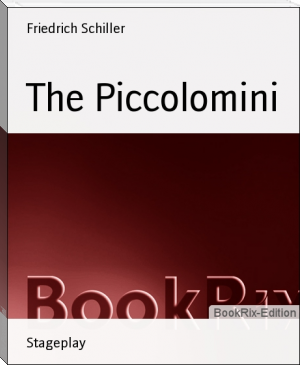
- Author: Friedrich Schiller
Book online «The Piccolomini, Friedrich Schiller [best e book reader android .txt] 📗». Author Friedrich Schiller
look at me with such a hopelessness! What have you to object against your father?
THEKLA. I? Nothing. Only he's so occupied-- He has no leisure time to think about The happiness of us two.
[Taking his hand tenderly.
Follow me Let us not place too great a faith in men. These Terzkys--we will still be grateful to them For every kindness, but not trust them further Than they deserve;--and in all else rely On our own hearts!
MAX.
O! shall we e'er be happy?
THEKLA. Are we not happy now? Art thou not mine? Am I not thine? There lives within my soul A lofty courage--'tis love gives it me! I ought to be less open--ought to hide My heart more from thee--so decorum dictates: But where in this place couldst thou seek for truth, If in my mouth thou didst not find it? We now have met, then let us hold each other Clasped in a lasting and a firm embrace. Believe me this was more than their intent. Then be our loves like some blest relic kept Within the deep recesses of the heart. From heaven alone the love has been bestowed, To heaven alone our gratitude is due; It can work wonders for us still.
SCENE VI.
To them enters the COUNTESS TERZKY.
COUNTESS (in a pressing manner).
Come, come! My husband sends me for you. It is now The latest moment.
[They not appearing to attend to what she says,
she steps between them.
Part you!
THEKLA.
Oh, not yet! It has been scarce a moment.
COUNTESS.
Ay! Then time Flies swiftly with your highness, princess niece!
MAX. There is no hurry, aunt.
COUNTESS.
Away! Away! The folks begin to miss you. Twice already His father has asked for him.
THEKLA.
Ha! His father! COUNTESS. You understand that, niece!
THEKLA.
Why needs he To go at all to that society? 'Tis not his proper company. They may Be worthy men, but he's too young for them; In brief, he suits not such society.
COUNTESS. You mean, you'd rather keep him wholly here?
THEKLA (with energy). Yes! You have hit it aunt! That is my meaning, Leave him here wholly! Tell the company----
COUNTESS. What! have you lost your senses, niece? Count, you remember the conditions. Come!
MAX (to THEKLA). Lady, I must obey. Fairwell, dear lady!
[THEKLA turns away from him with a quick motion. What say you then, dear lady?
THEKLA (without looking at him).
Nothing. Go!
MAX. Can I when you are angry----
[He draws up to her, their eyes meet, she stands silent a moment,
then throws herself into his arms; he presses her fast to his heart.
COUNTESS. Off! Heavens! if any one should come! Hark! What's that noise! It comes this way. Off!
[MAX. tears himself away out of her arms and goes. The COUNTESS
accompanies him. THEKLA follows him with her eyes at first, walks
restlessly across the room, then stops, and remains standing, lost
in thought. A guitar lies on the table, she seizes it as by a
sudden emotion, and after she has played awhile an irregular and
melancholy symphony, she falls gradually into the music and sings.
SCENE VII.
THEKLA (plays and sings).
The cloud doth gather, the greenwood roar,
The damsel paces along the shore;
The billows, they tumble with might, with might;
And she flings out her voice to the darksome night;
Her bosom is swelling with sorrow;
The world it is empty, the heart will die,
There's nothing to wish for beneath the sky
Thou Holy One, call thy child away!
I've lived and loved, and that was to-day;
Make ready my grave-clothes to-morrow. [12]
SCENE VIII.
COUNTESS (returns), THEKLA.
COUNTESS. Fie, lady niece! to throw yourself upon him Like a poor gift to one who cares not for it, And so must be flung after him! For you, Duke Friedland's only child, I should have thought It had been more beseeming to have shown yourself More chary of your person.
THEKLA (rising).
And what mean you?
DUCHESS. I mean, niece, that you should not have forgotten Who you are, and who he is. But perchance That never once occurred to you.
THEKLA.
What then?
COUNTESS. That you're the daughter of the Prince Duke Friedland.
THEKLA. Well, and what farther?
DUCHESS.
What? A pretty question!
THEKLA. He was born that which we have but become. He's of an ancient Lombard family, Son of a reigning princess.
COUNTESS.
Are you dreaming? Talking in sleep? An excellent jest, forsooth! We shall no doubt right courteously entreat him To honor with his hand the richest heiress In Europe.
THEKLA.
That will not be necessary.
COUNTESS. Methinks 'twere well, though, not to run the hazard.
THEHLA. His father loves him; Count Octavio Will interpose no difficulty----
COUNTESS.
His! His father! His! But yours, niece, what of yours?
THERLA. Why, I begin to think you fear his father, So anxiously you hide it from the man! His father, his, I mean.
COUNTESS (looks at her as scrutinizing).
Niece, you are false.
THEBLA. Are you then wounded? O, be friends with me!
COUNTESS. You hold your game for won already. Do not Triumph too soon!
THEKLA (interrupting her, and attempting to soothe her).
Nay now, be friends with me.
COUNTESS. It is not yet so far gone.
THEKLA.
I believe you.
COUNTESS. Did you suppose your father had laid out His most important life in toils of war, Denied himself each quiet earthly bliss, Had banished slumbers from his tent, devoted His noble head to care, and for this only, To make a happier pair of you? At length To draw you from your convent, and conduct In easy triumph to your arms the man That chanced to please your eyes! All this, methinks, He might have purchased at a cheaper rate.
THEKLA. That which he did not plant for me might yet Bear me fair fruitage of its own accord. And if my friendly and affectionate fate, Out of his fearful and enormous being, Will but prepare the joys of life for me----
COUNTESS. Thou seest it with a lovelorn maiden's eyes, Cast thine eye round, bethink thee who thou art;-- Into no house of joyance hast thou stepped, For no espousals dost thou find the walls Decked out, no guests the nuptial garland wearing; Here is no splendor but of arms. Or thinkest thou That all these thousands are here congregated To lead up the long dances at thy wedding! Thou see'st thy father's forehead full of thought, Thy mother's eye in tears: upon the balance Lies the great destiny of all our house. Leave now the puny wish, the girlish feeling; Oh, thrust it far behind thee! Give thou proof Thou'rt the daughter of the mighty--his Who where he moves creates the wonderful. Not to herself the woman must belong, Annexed and bound to alien destinies. But she performs the best part, she the wisest, Who can transmute the alien into self, Meet and disarm necessity by choice; And what must be, take freely to her heart, And bear and foster it with mother's love.
THEKLA. Such ever was my lesson in the convent. I had no loves, no wishes, knew myself Only as his--his daughter--his, the mighty! His fame, the echo of whose blast drove to me From the far distance, weakened in my soul No other thought than this--I am appointed To offer myself up in passiveness to him.
COUNTESS. That is thy fate. Mould thou thy wishes to it-- I and thy mother gave thee the example.
THEKLA. My fate hath shown me him, to whom behoves it That I should offer up myself. In gladness Him will I follow.
COUNTESS.
Not thy fate hath shown him! Thy heart, say rather--'twas thy heart, my child!
THEKLA. Faith hath no voice but the heart's impulses. I am all his! His present--his alone. Is this new life, which lives in me? He hath A right to his own creature. What was I Ere his fair love infused a soul into me?
COUNTESS. Thou wouldst oppose thy father, then, should he Have otherwise determined with thy person?
[THEKLA remains silent. The COUNTESS continues. Thou meanest to force him to thy liking? Child, His name is Friedland.
THEKLA.
My name too is Friedland. He shall have found a genuine daughter in me.
COUNTESS. What! he has vanquished all impediment, And in the wilful mood of his own daughter Shall a new struggle rise for him? Child! child! As yet thou hast seen thy father's smiles alone; The eye of his rage thou hast not seen. Dear child, I will not frighten thee. To that extreme, I trust it ne'er shall come. His will is yet Unknown to me; 'tis possible his aims May have the same direction as thy wish. But this can never, never be his will, That thou, the daughter of his haughty fortunes, Shouldest e'er demean thee as a lovesick maiden And like some poor cost-nothing, fling thyself Toward the man, who, if that high prize ever Be destined to await him, yet with sacrifices The highest love can bring, must pay for it.
[Exit COUNTESS.
SCENE IX.
THEKLA (who during the last speech had been standing evidently
lost in her
THEKLA. I? Nothing. Only he's so occupied-- He has no leisure time to think about The happiness of us two.
[Taking his hand tenderly.
Follow me Let us not place too great a faith in men. These Terzkys--we will still be grateful to them For every kindness, but not trust them further Than they deserve;--and in all else rely On our own hearts!
MAX.
O! shall we e'er be happy?
THEKLA. Are we not happy now? Art thou not mine? Am I not thine? There lives within my soul A lofty courage--'tis love gives it me! I ought to be less open--ought to hide My heart more from thee--so decorum dictates: But where in this place couldst thou seek for truth, If in my mouth thou didst not find it? We now have met, then let us hold each other Clasped in a lasting and a firm embrace. Believe me this was more than their intent. Then be our loves like some blest relic kept Within the deep recesses of the heart. From heaven alone the love has been bestowed, To heaven alone our gratitude is due; It can work wonders for us still.
SCENE VI.
To them enters the COUNTESS TERZKY.
COUNTESS (in a pressing manner).
Come, come! My husband sends me for you. It is now The latest moment.
[They not appearing to attend to what she says,
she steps between them.
Part you!
THEKLA.
Oh, not yet! It has been scarce a moment.
COUNTESS.
Ay! Then time Flies swiftly with your highness, princess niece!
MAX. There is no hurry, aunt.
COUNTESS.
Away! Away! The folks begin to miss you. Twice already His father has asked for him.
THEKLA.
Ha! His father! COUNTESS. You understand that, niece!
THEKLA.
Why needs he To go at all to that society? 'Tis not his proper company. They may Be worthy men, but he's too young for them; In brief, he suits not such society.
COUNTESS. You mean, you'd rather keep him wholly here?
THEKLA (with energy). Yes! You have hit it aunt! That is my meaning, Leave him here wholly! Tell the company----
COUNTESS. What! have you lost your senses, niece? Count, you remember the conditions. Come!
MAX (to THEKLA). Lady, I must obey. Fairwell, dear lady!
[THEKLA turns away from him with a quick motion. What say you then, dear lady?
THEKLA (without looking at him).
Nothing. Go!
MAX. Can I when you are angry----
[He draws up to her, their eyes meet, she stands silent a moment,
then throws herself into his arms; he presses her fast to his heart.
COUNTESS. Off! Heavens! if any one should come! Hark! What's that noise! It comes this way. Off!
[MAX. tears himself away out of her arms and goes. The COUNTESS
accompanies him. THEKLA follows him with her eyes at first, walks
restlessly across the room, then stops, and remains standing, lost
in thought. A guitar lies on the table, she seizes it as by a
sudden emotion, and after she has played awhile an irregular and
melancholy symphony, she falls gradually into the music and sings.
SCENE VII.
THEKLA (plays and sings).
The cloud doth gather, the greenwood roar,
The damsel paces along the shore;
The billows, they tumble with might, with might;
And she flings out her voice to the darksome night;
Her bosom is swelling with sorrow;
The world it is empty, the heart will die,
There's nothing to wish for beneath the sky
Thou Holy One, call thy child away!
I've lived and loved, and that was to-day;
Make ready my grave-clothes to-morrow. [12]
SCENE VIII.
COUNTESS (returns), THEKLA.
COUNTESS. Fie, lady niece! to throw yourself upon him Like a poor gift to one who cares not for it, And so must be flung after him! For you, Duke Friedland's only child, I should have thought It had been more beseeming to have shown yourself More chary of your person.
THEKLA (rising).
And what mean you?
DUCHESS. I mean, niece, that you should not have forgotten Who you are, and who he is. But perchance That never once occurred to you.
THEKLA.
What then?
COUNTESS. That you're the daughter of the Prince Duke Friedland.
THEKLA. Well, and what farther?
DUCHESS.
What? A pretty question!
THEKLA. He was born that which we have but become. He's of an ancient Lombard family, Son of a reigning princess.
COUNTESS.
Are you dreaming? Talking in sleep? An excellent jest, forsooth! We shall no doubt right courteously entreat him To honor with his hand the richest heiress In Europe.
THEKLA.
That will not be necessary.
COUNTESS. Methinks 'twere well, though, not to run the hazard.
THEHLA. His father loves him; Count Octavio Will interpose no difficulty----
COUNTESS.
His! His father! His! But yours, niece, what of yours?
THERLA. Why, I begin to think you fear his father, So anxiously you hide it from the man! His father, his, I mean.
COUNTESS (looks at her as scrutinizing).
Niece, you are false.
THEBLA. Are you then wounded? O, be friends with me!
COUNTESS. You hold your game for won already. Do not Triumph too soon!
THEKLA (interrupting her, and attempting to soothe her).
Nay now, be friends with me.
COUNTESS. It is not yet so far gone.
THEKLA.
I believe you.
COUNTESS. Did you suppose your father had laid out His most important life in toils of war, Denied himself each quiet earthly bliss, Had banished slumbers from his tent, devoted His noble head to care, and for this only, To make a happier pair of you? At length To draw you from your convent, and conduct In easy triumph to your arms the man That chanced to please your eyes! All this, methinks, He might have purchased at a cheaper rate.
THEKLA. That which he did not plant for me might yet Bear me fair fruitage of its own accord. And if my friendly and affectionate fate, Out of his fearful and enormous being, Will but prepare the joys of life for me----
COUNTESS. Thou seest it with a lovelorn maiden's eyes, Cast thine eye round, bethink thee who thou art;-- Into no house of joyance hast thou stepped, For no espousals dost thou find the walls Decked out, no guests the nuptial garland wearing; Here is no splendor but of arms. Or thinkest thou That all these thousands are here congregated To lead up the long dances at thy wedding! Thou see'st thy father's forehead full of thought, Thy mother's eye in tears: upon the balance Lies the great destiny of all our house. Leave now the puny wish, the girlish feeling; Oh, thrust it far behind thee! Give thou proof Thou'rt the daughter of the mighty--his Who where he moves creates the wonderful. Not to herself the woman must belong, Annexed and bound to alien destinies. But she performs the best part, she the wisest, Who can transmute the alien into self, Meet and disarm necessity by choice; And what must be, take freely to her heart, And bear and foster it with mother's love.
THEKLA. Such ever was my lesson in the convent. I had no loves, no wishes, knew myself Only as his--his daughter--his, the mighty! His fame, the echo of whose blast drove to me From the far distance, weakened in my soul No other thought than this--I am appointed To offer myself up in passiveness to him.
COUNTESS. That is thy fate. Mould thou thy wishes to it-- I and thy mother gave thee the example.
THEKLA. My fate hath shown me him, to whom behoves it That I should offer up myself. In gladness Him will I follow.
COUNTESS.
Not thy fate hath shown him! Thy heart, say rather--'twas thy heart, my child!
THEKLA. Faith hath no voice but the heart's impulses. I am all his! His present--his alone. Is this new life, which lives in me? He hath A right to his own creature. What was I Ere his fair love infused a soul into me?
COUNTESS. Thou wouldst oppose thy father, then, should he Have otherwise determined with thy person?
[THEKLA remains silent. The COUNTESS continues. Thou meanest to force him to thy liking? Child, His name is Friedland.
THEKLA.
My name too is Friedland. He shall have found a genuine daughter in me.
COUNTESS. What! he has vanquished all impediment, And in the wilful mood of his own daughter Shall a new struggle rise for him? Child! child! As yet thou hast seen thy father's smiles alone; The eye of his rage thou hast not seen. Dear child, I will not frighten thee. To that extreme, I trust it ne'er shall come. His will is yet Unknown to me; 'tis possible his aims May have the same direction as thy wish. But this can never, never be his will, That thou, the daughter of his haughty fortunes, Shouldest e'er demean thee as a lovesick maiden And like some poor cost-nothing, fling thyself Toward the man, who, if that high prize ever Be destined to await him, yet with sacrifices The highest love can bring, must pay for it.
[Exit COUNTESS.
SCENE IX.
THEKLA (who during the last speech had been standing evidently
lost in her
Free e-book «The Piccolomini, Friedrich Schiller [best e book reader android .txt] 📗» - read online now
Similar e-books:
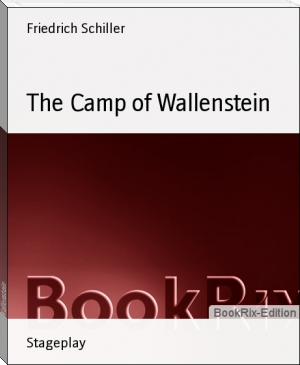
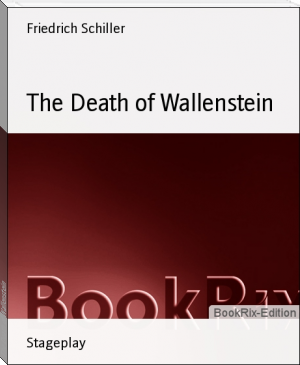
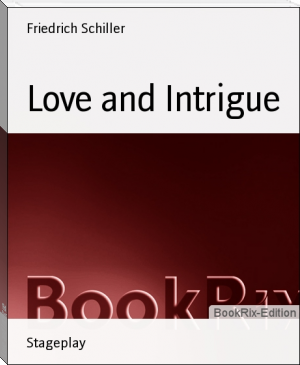
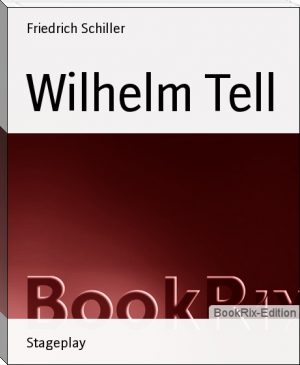
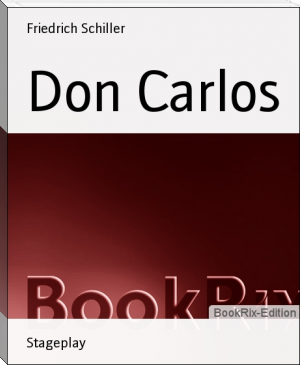
Comments (0)